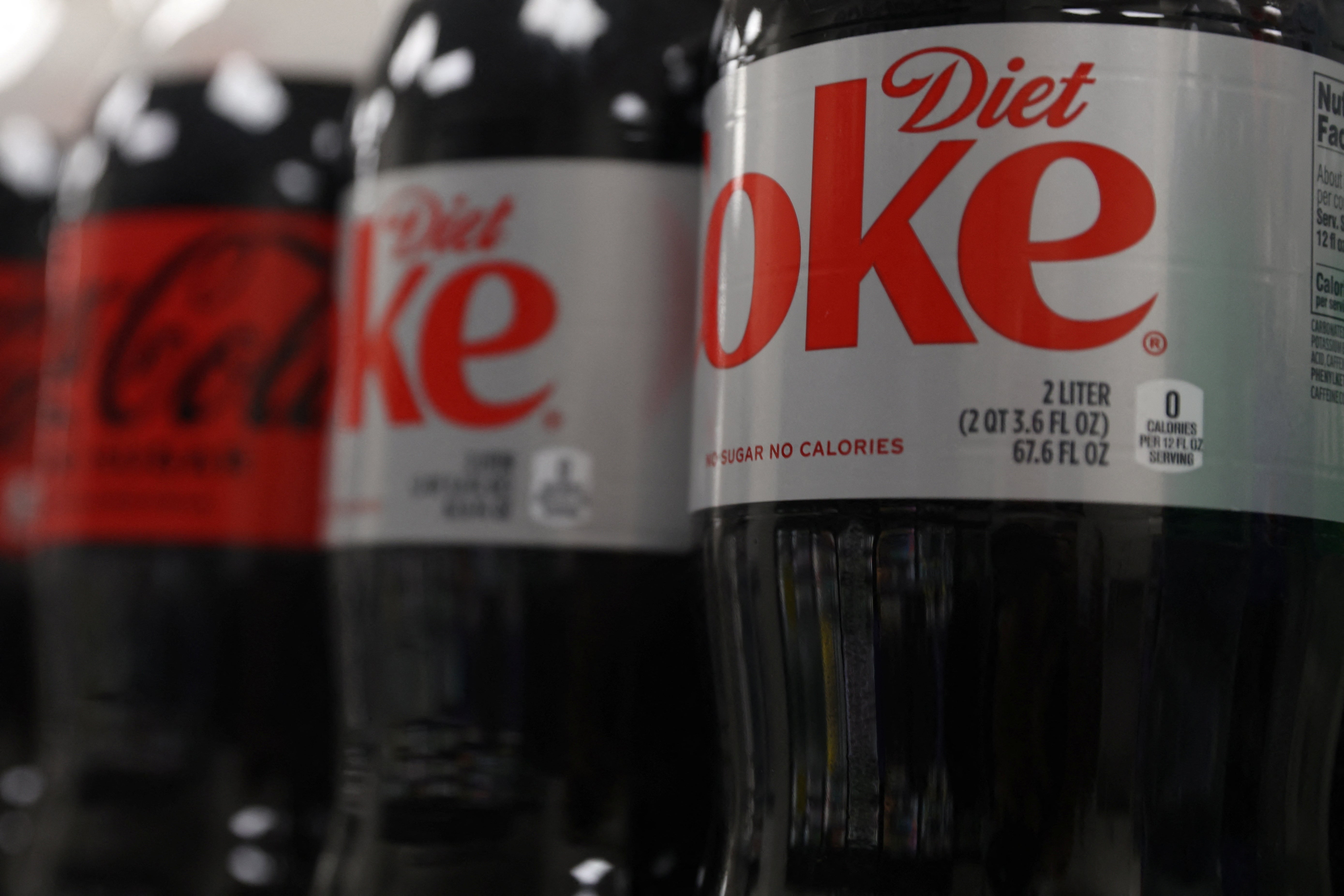What diet drinks don’t have aspartame in them?
A common sweetener, aspartame is to be labelled a possible carcinogen next month
Your support helps us to tell the story
From reproductive rights to climate change to Big Tech, The Independent is on the ground when the story is developing. Whether it's investigating the financials of Elon Musk's pro-Trump PAC or producing our latest documentary, 'The A Word', which shines a light on the American women fighting for reproductive rights, we know how important it is to parse out the facts from the messaging.
At such a critical moment in US history, we need reporters on the ground. Your donation allows us to keep sending journalists to speak to both sides of the story.
The Independent is trusted by Americans across the entire political spectrum. And unlike many other quality news outlets, we choose not to lock Americans out of our reporting and analysis with paywalls. We believe quality journalism should be available to everyone, paid for by those who can afford it.
Your support makes all the difference.A common sweetener used in a number of popular diet drinks is set to be declared a possible carcinogen by the World Health Organisation (WHO) next month.
The International Agency for Research on Cancer (IARC), an arm of the WHO, is poised to introduce the label from July, sparking concerns amongst consumers as to the content of the food and drinks they consume.
The IARC ruling was finalised earlier in June, and is intended to assess whether something is a potential hazard.

The ingredient set to be re-labelled is aspartame, a popular artificial sweetener found in an array of food products including Diet Coke, chewing gum and light yoghurt.
Discovered in 1965 by US chemist James Schlatter, it is approximately 200 times sweeter than regular table sugar.

A low-calorie sugar substitute, it was approved by the U.S. Food and Drug Administration (FDA) in 1974 to be used as a tabletop sweetener and additive in breakfast cereals, among other foods. It was first approved for UK use in 1982.
So, how do the nation’s diet drinks stack up in terms of aspartame use?
The following popular drinks do not contain aspartame:
Tango Sugar Free - Orange, Dark Berry, Paradise Punch, Apple: Tango opts for alternative sweeteners in its sugar free drinks, using Sucralose, Acesulfame K.
Monster Energy Sugar Free: Likewise, Monster Energy uses Sucralose and Acesulfame K rather than aspartame.
Karma Drinks Sugar Free Karma Cola: A smaller brand, Karma Drinks markets its sugar-free cola as “all natural”, containing no artificial sweeteners and no preservatives. It uses Steviol Glycosides as a sweetener.
Fentimans Traditional Curiosity Cola: Another alternative to the large brands, Fentimans uses Steviol Glycosides from Stevia as a sweetener.
Red Bull Sugar Free: A popular energy drink, the sugar free Red Bull alternative uses Sucralose and Acesulfame K as sweeteners.
Own-brand supermarket alternatives are also typically free from aspartame, including Sainsbury’s and Tesco’s diet lemonade drinks, as well as diet cola alternatives from Morrisons, Sainsbury’s, Asda and Tesco.
These diet drinks do contain aspartame:
- Diet Coke
- Coke Zero
- Pepsi Max
- Fanta Zero
- Dr Pepper Zero
- IRN-BRU Xtra Sugar Free
- 7Up Zero Sugar.
Note: This article was updated on 11 July 2023 to reflect that Red Bull Sugar Free does not contain aspartame.




Join our commenting forum
Join thought-provoking conversations, follow other Independent readers and see their replies
Comments